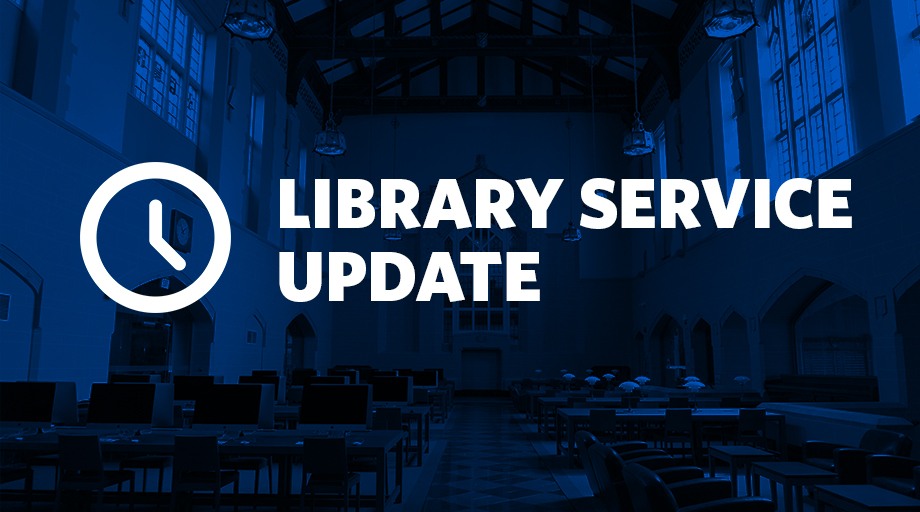
Dr. JENNIFER GAGNON
UBC Library EDI Scholar-in-Residence 2025/2026
Dr. Jennifer M. Gagnon is a Lecturer in the School of Journalism, Writing, and Media. She is the creator and President of UBC’s Disability Affinity Group, which works towards the goals of community care and Disability Justice, and serves on UBC’s Accessibility Committee. Her research is interdisciplinary and embraces topics in Disability Studies, political theory, classics, qualitative methods, accessible healthcare, Universal Design for Learning (UDL), feminism, and gender. As an advocate, she is involved in efforts and workshop facilitation on Disability Justice, accessibility, consent culture, and LGBTQ2SIA+ inclusion. Read Jennifer’s full bio.
Q: What have been your biggest professional challenges?
I would say the two biggest professional challenges I’ve faced are the intersections of ableism and precarious academic employment — and the two are very much connected. When we look at disability representation in post-secondary environments, there are very few disabled faculty members overall. And when disabled faculty are present, they are often limited to precarious contract positions that deny them access to permanent, stable employment or tenure. I’m in both those groups as a disabled lecturer and former sessional instructor.
These challenges affect your credibility. Oftentimes, when people hear the word disabled, they assume it means being unable or incapable of doing something. Because of ableism, a disability is almost always understood as a lack or deficiency or something that’s broken or wrong about you. Contract faculty are also often seen as less than tenure-track faculty, despite having the same credentials and doing similar work. That combination can make it really challenging to not only distinguish yourself, but to constantly come up against those biases and forms of prejudice.
It takes ongoing work to hold space and assert that disabled faculty and contract faculty are researchers, are valuable, and are essential members of our university communities.
Q: What has been the highlight of the last year for you professionally?
Honestly, this opportunity is one of them. I’m so excited to be able to do disability justice work — and to do it in a way that’s available and open to everyone at UBC. When I think about professional highlights, I’m really proud of the progress we’ve made with the Disability Affinity Group (DAG), which is a community of care, support, and advocacy for self-identified disabled people at UBC that I created and run. I’m the president of DAG, and the fact that we’re receiving more requests for consultation and support than we can even handle is a huge professional highlight and shows how much we need to support spaces for disabled folks to build community and advance advocacy.
I’m also proud of my ability to persist at the university — to keep doing research — and to now be named the Principal Investigator of the Disabled Voices Project, which received partial funding from the StEAR Fund. This project is by disabled folks, for disabled community, as the research team all self-identify as disabled, and our research goal to surface the experiences of disabled folks at UBC emerged out of collaborative conversations with the disabled community.
“I would say the two biggest professional challenges I’ve faced are the intersections of ableism and precarious academic employment — and the two are very much connected.”
Q: Why did you want to participate in the EDI Scholar-in-Residence program?
I think it’s incredibly important that the disabled community at UBC is both represented and celebrated. So often, ableism teaches us to see disability as a source of shame, of wrongness or brokenness. But disability is actually an identity. It’s part of who I am and part of what shapes me and has made me the person I am today. I want people to feel they can say “I’m disabled” with the same pride that I feel when I say I’m a bisexual woman. I want disability to be a positive source of identity, pride, and belonging.
Disability justice is really underrepresented at the university, and the stories, knowledge, experiences, and expertise of disabled people are often marginalized. I hope this work can contribute to changing that.
Q: How have you structured your public engagement sessions for your term as our EDI Scholar?
This opportunity — to use a book-club format to tell and share disabled stories and experiences — felt meaningful and necessary.
Being able to create an opportunity grounded in the belief that we can together dream Disability Justice into being, is why this is why this program means so much to me. It’s an opportunity to diversify our thoughts and our book shelves.
“I’m so excited to be able to do disability justice work — and to do it in a way that’s available and open to everyone at UBC.”
Q: Are there any resources at the library that you’re hoping to access during your time as an EDI Scholar-in-Residence?
We’re actually hoping to create new resources for the library. One of the reasons I wanted to structure this project as a book club is that it gives us the opportunity to develop a disability justice book-club kit — something that can continue to exist long after this EDI Scholar-in-Residence term ends. The idea is to create a set of resources and a clear structure for a disability justice book club that individual units or community members can access and use on their own.
Another key piece of my work is modelling accessibility. Disability justice is about access and transformation, and I wanted the structure and delivery of the book club to demonstrate best practices for making events as accessible and inclusive as possible. We’ve done that in several creative ways — blending in-person and online participation, ensuring all books and texts are available in multiple formats at no cost, and providing accessible versions such as ebooks, audiobooks when possible, large-print formats, and materials compatible with screen readers and other adaptive technologies.
We’re also creating resource guides to help participants access the materials easily. Rather than placing the burden of securing access on the person facing the barrier, we’re trying to model what it looks like to build accessibility in proactively. In doing so, we hope to help establish expectations and best practices that can be applied to all meetings and events at the university. And along the way, I hope people discover that assistive technologies and alternate formats can benefit everyone.
The Equity, Diversity, and Inclusion (EDI) Scholars-in-Residence program is open to scholars who hold degrees in any discipline. Residency at UBC’s Irving K. Barber Learning Centre allows Scholars to participate in collaborative and interdisciplinary public programming with a clear impact on equity, diversity, and inclusion. For more information, visit the program website. This program is made possible with support from the Peña Fund.





















